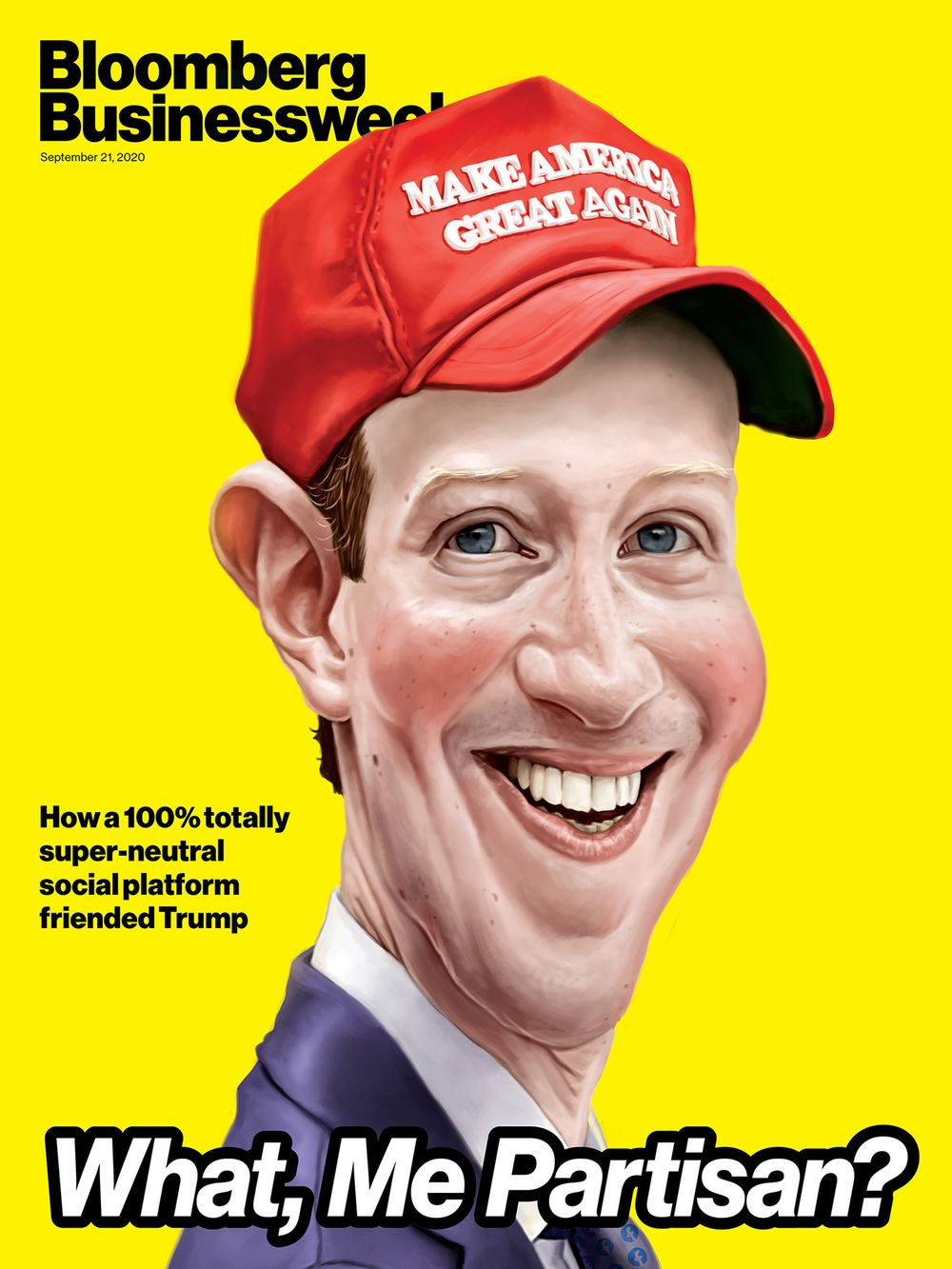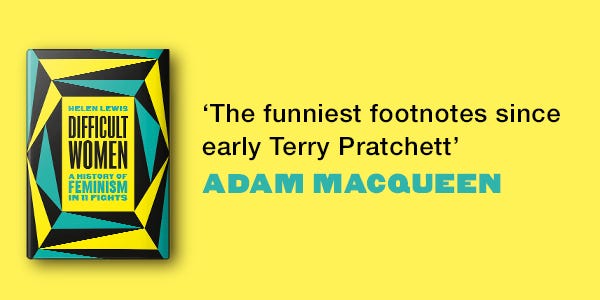Happy Friday!
The Spark is back! First episode here.
This week, I watched Des, ITV’s drama about the serial killer Dennis Nilsen. Once you get over how much David Tennant has been made to look like Robert Peston, it’s brilliant. I knew I was going to like it when the police came up to Nilsen’s flat, smelled the decomposition, and went, “stop mucking us around, where’s the rest of the body?” and he just went, “the cupboard”.
As a psychological portrait, it’s compelling, because Nilsen’s initial behaviour to the police is deeply, deeply weird in an extremely believable way. One of the most disturbing things I’ve ever heard is a 999 recording of an older man who’s just killed his wife, and has phoned up to report the murder. He’s . . . making small talk. Like, cracking jokes to paper over the awkwardness of a totally new social situation. It feels a lot more plausible than the TV-trope of someone smouldering away, exuding menace.

I mean, doesn’t he look like he has views on WTO tariffs?
Nilsen is like that, too, in this telling. He says he wants to help the police sort out this “mess” and expresses sadness that one of his victims is a heroin addict, because isn’t it terrible how drugs destroy young lives? What he doesn’t express is agency. Yes, murders happened. That’s regrettable. Can I have a cigarette, please?
This is the opposite of a crime drama: we don’t see the killer, there’s no suspense-filled search for the murderer, and one character even expresses the view that we’ll never know why he did what he did. The show’s scriptwriter (who adapted the material from a book called Killing for Company) said that what interested in him most was the society which let Dennis Nilsen happen, and took so long to catch him. The anti-story is fresher than the classic story.
Also, looking on Twitter afterwards, I thoroughly enjoyed Nilsen’s former boss at the JobCentre reminiscing about how his employee “stuck up for the underdog”. I’m sure he did. While also strangling and drowning vulnerable young men. That’s the difference between a fictional character and a human being. Humans are just so much weirder.
Helen
PS. I also did a podcast with Julia Gillard before lockdown, which is here. I’m amused by how this photo caption wants to make it VERY CLEAR that Julia Gillard did not break social distancing rules by snuggling me. It was EARLY MARCH, OK? Things were different then.

The Battle over Dyslexia (Guardian Long Read)
Because change does not come fast, if it comes at all, Cambridgeshire is still paying to send children to private dyslexia schools: it is still legally obligated to honour the judgment made in tribunals, regardless of the reforms. If you plot the distribution of where these children live on a map, 80% are clustered in Cambridge city centre, or south Cambridge, the wealthiest parts of the county. None of them come from Fenland. It is a microcosm of the situation nationally. Following their abortive efforts to implement a new regime, Warwickshire and Staffordshire spend roughly £900,000 between them sending 53 children to private dyslexia schools per year. For the same amount of money, they could hire 27 teachers.
As someone with a longstanding fascination with the social construction of illness (yesterday’s hysteria is today’s anxiety disorder), I loved this piece about how the diagnosis of dyslexia has become a way for sharp-elbowed parents to jimmy more resources out of the state school system.
Woke Conspiracies (LRB)
‘Impartiality’ towards mainstream political parties, during election campaigns, say, can be exercised in a roughly scientific fashion, though it would be easier to persuade people that the principle was being upheld if there weren’t a revolving door between the media and politics (the door through which Gibb walked). But ‘impartiality’ with respect to culture is a trap, as Gibb, Murdoch and the right-wing press understand very well. Davie may be able to answer demands over patriotic songs or individual shows, but resentment towards the ‘cosmopolitan elite’ can always be topped up with fresh outrages and insinuations. The monster he is now feeding cannot be – and does not want to be – satisfied.
Will Davies on the planned rightwing rivals to the BBC.

Owning My Image (The Cut)
By then, I’d appeared in David Fincher’s Gone Girl and on the covers of international magazines. When the news broke of a book being sold with my name on it — the cover was completely white and read only EMILY RATAJKOWSKI in bold black lettering — several media outlets reached out to me directly, thinking they were being generous by offering their support to a new project of mine.
Confused, I searched my name online. There it was: Emily Ratajkowski, the book, priced at $80. Some of the images were posted on Jonathan’s Instagram, and they were among the most revealing and vulgar Polaroids he had taken of me.
This story, by the model and actor Emily Ratajkowski, is an extraordinary insight into what it’s like to make a living by selling yourself through other people’s cameras. It also contains one of the worst ways to reply to a request for comment I’ve ever encountered: “When the fact-checker I worked with on this story reached out to Jonathan about what happened that night after the shoot, he said my allegations were ‘too tawdry and childish to respond to.’ He added: ‘You do know who we are talking about right? This is the girl that was naked in Treats! magazine, and bounced around naked in the Robin Thicke video at that time. You really want someone to believe she was a victim?’”
Conspiracy Theories and the US Election (TIME)
On a cigarette break outside their small business in Ozaukee County, Tina Arthur and Marcella Frank told me they plan to vote for Trump again because they are deeply alarmed by “the cabal.” They’ve heard “numerous reports” that the COVID-19 tents set up in New York and California were actually for children who had been rescued from underground sex-trafficking tunnels.
Arthur and Frank explained they’re not followers of QAnon. Frank says she spends most of her free time researching child sex trafficking, while Arthur adds that she often finds this information on the Russian-owned search engine Yandex. Frank’s eyes fill with tears as she describes what she’s found: children who are being raped and tortured so that “the cabal” can “extract their blood and drink it.” She says Trump has seized the blood on the black market as part of his fight against the cabal. “I think if Biden wins, the world is over, basically,” adds Arthur. “I would honestly try to leave the country. And if that wasn’t an option, I would probably take my children and sit in the garage and turn my car on and it would be over.”
Welp.
“I Have Blood on My Hands”: A Whistleblower Says Facebook Ignored Global Political Manipulation (Buzzfeed)
The same happened in Ecuador, according to Zhang, who “found inauthentic activity supporting the ruling government… and made the decision not to prioritize it.” The former Facebook employee then wondered how her decision led to downstream effects on how Ecuador’s government handled the COVID-19 pandemic — which has devastated the country — and if that would have been different if she'd acted.
“I have made countless decisions in this vein – from Iraq to Indonesia, from Italy to El Salvador. Individually, the impact was likely small in each case, but the world is a vast place. Although I made the best decision I could based on the knowledge available at the time, ultimately I was the one who made the decision not to push more or prioritize further in each case, and I know that I have blood on my hands by now.”
Zhang also uncovered issues in India, Facebook’s largest market, in the lead up to the local Delhi elections in February 2020. “I worked through sickness to take down a politically-sophisticated network of more than a thousand actors working to influence the election,” she wrote.
I thought this was the most important story published this week, but it generated zero follow-up or anger or anything, really, because, as the piece itself notes, unless Facebook screws up in America it can basically do what it likes. Sorry, Honduras!
Chaser: Here’s Bloomberg on how Mark Zuckerberg is far closer to Trump than Biden (he hasn’t spoken to the latter all year).

Quick Links
“Now, [Owen Jones’s] promise is of candour. Corbyn is described as ‘endlessly indecisive’: a man who, when faced with conflict, sometimes ‘didn’t come into the office or answer his phone’, ‘often did not seem fully present’, and was ‘always difficult to prep for major interviews and debates’.” John Harris reviews Left Out and This Land. I find the implications of this troubling (though I will reserve judgement until I read the book).
“On the one hand, you had the Academy of Motion Picture Arts and Sciences, which organises the Oscars, introducing a quota system that films will have to comply with to be considered for the best picture category. On the other, Disney released a live-action remake of Mulan that was partly filmed in Xinjiang, home to the Uighur detention camps. The producers weren’t shy about it, either, thanking eight Xinjiang government agencies in the credits, including the public security bureau that helps operate some of the camps.” Classic woke capitalism. (The Sunday Times)
“The night she arrived at Provo, [Paris] Hilton recalls in the documentary, she was taken from her bed as if she was being kidnapped. She said she and her peers were routinely given mystery pills, and when Ms. Hilton refused to take them, she would be sent to solitary confinement for sometimes 20 hours at a time without clothing. She also claims emotional, verbal and physical abuse from teachers and administrators. “It was just like living in hell,” Ms. Hilton said.” (New York Times)
Bitchy memoir of the year is a dead heat between Sasha Swire (“Poor old Sarah Gove, who bends over backwards to please the Camerons, was lumbered with cooking all the food while Samantha was upstairs learning to cut patterns (she wants to set up a fashion business). She then had her hair done! Turning up at her own party feeling perfectly relaxed while Sarah is laden down with dishes of fish pie she has herself cooked.” ) and Barbara Amiel (“At one Manhattan charity dinner with them, I reached for the bread. ‘Barbara,’ Jayne rebuked, ‘bread is not the staff of life.’ They all thought I weighed too much.”)

See you next time . . .


